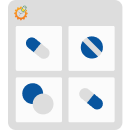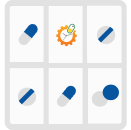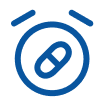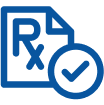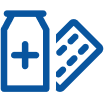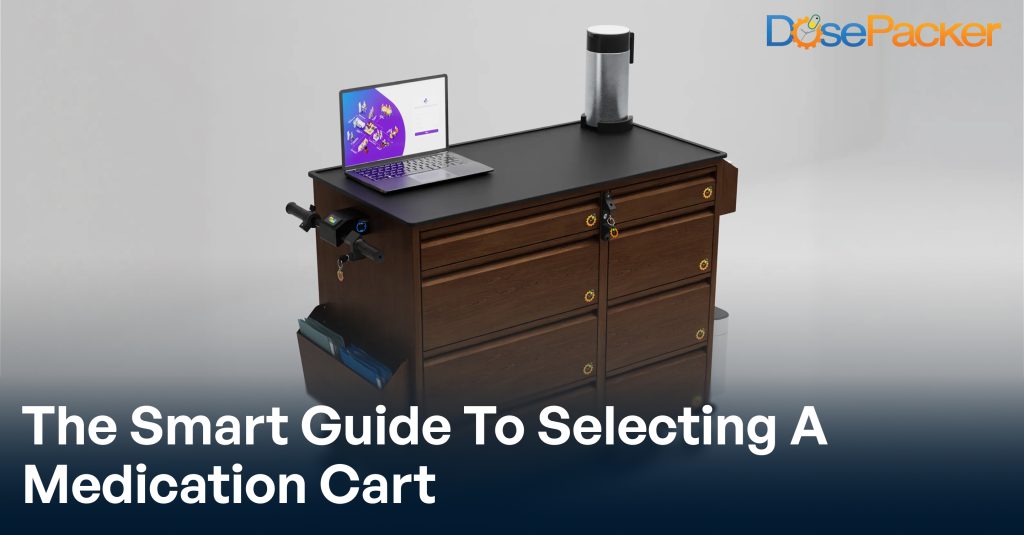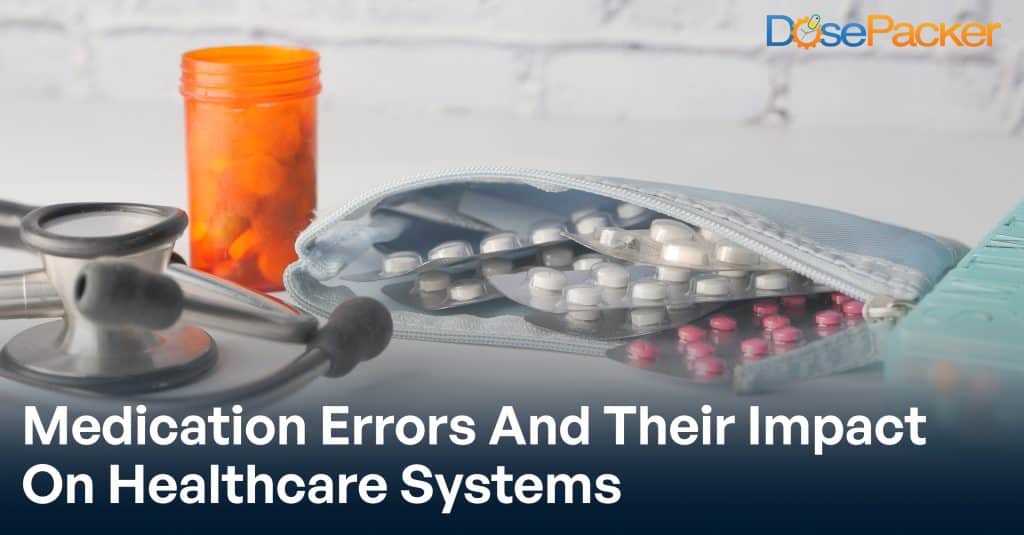Unlock the latest in medication management technology and grow your care community with us.
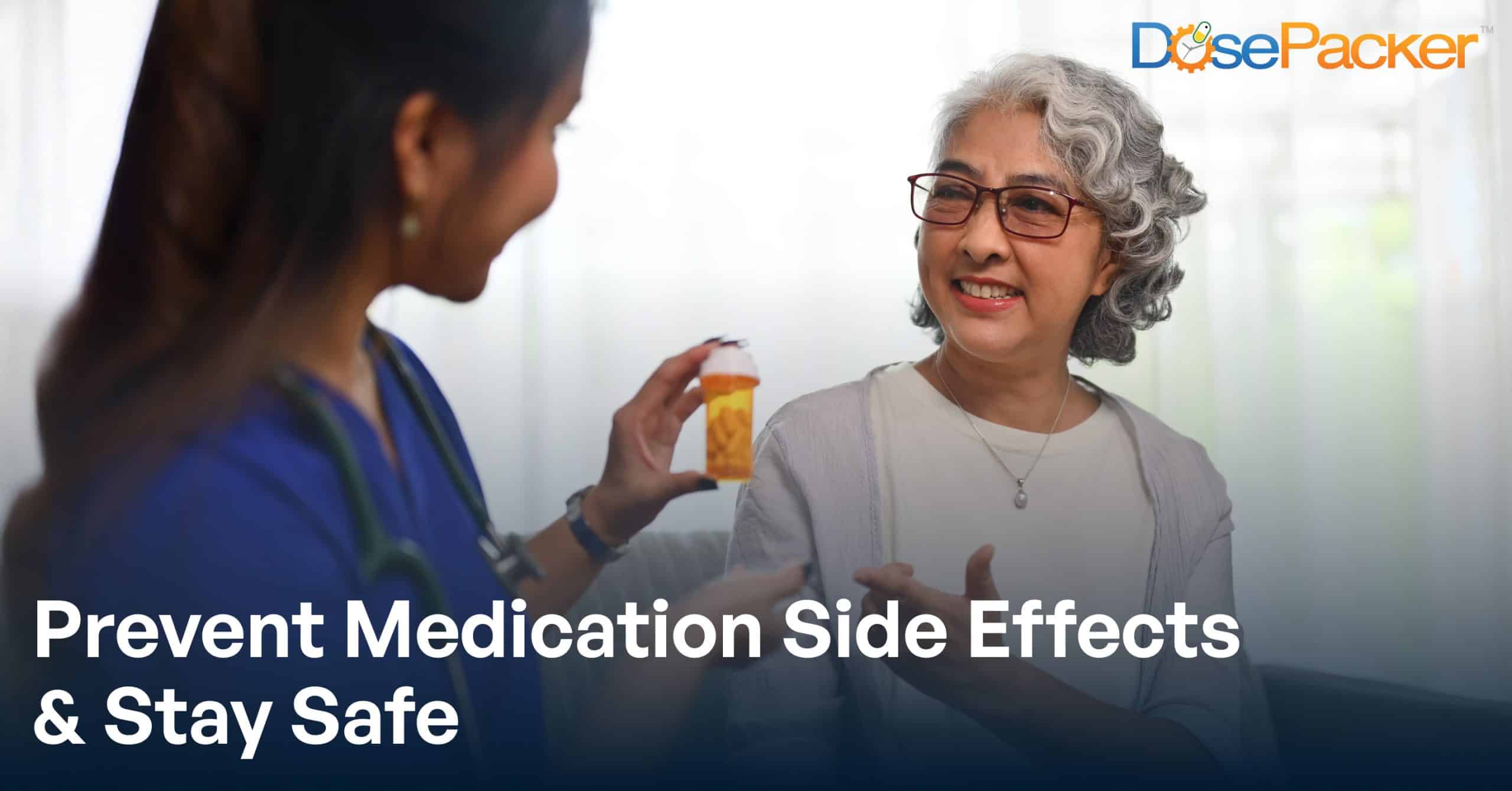
Medications are meant to make us feel better, but sometimes they come with a little extra baggage: side effects. Maybe it’s that drowsy feeling after taking an allergy pill or a stomach upset from antibiotics. While these reactions can be frustrating, they’re actually pretty common and, in most cases, manageable.
In fact, a study from the MSD Manual shows that adverse drug effects happen more often than many realize. Among adults over 65 living at home, these events occur at a rate of approximately 50 per 1,000 people each year. Side effects can range from uncomfortable but mild, like constipation or nausea, to more serious problems, such as confusion, bleeding, or even falls. That’s why knowing what to expect and how to handle it is so important.
The good news? Medication side effects don’t have to derail your treatment. With the right knowledge and strategies, many can be minimized or avoided. In this blog, we’ll explore what side effects are, why they happen, and how you can take charge of your medication care safely and confidently.
Stay One Step Ahead of Side Effects
What Are Medication Side Effects
A side effect is any unwanted or unexpected reaction your body has to a medication. While the goal of medicine is to help you feel better, sometimes your body reacts in ways that weren’t intended.
Not all medication side effects are the same. Some are merely a nuisance, while others require immediate medical attention. Here’s the difference:
Common side effects are usually mild and temporary. These can include things like:
- Nausea or upset stomach
- Drowsiness or fatigue
- Mild headaches
- Constipation or diarrhea
Serious side effects are less common but can be dangerous. These should never be ignored and may include:
- Allergic reactions such as rashes, swelling, or itching
- Difficulty breathing
- Severe dizziness or confusion
- Chest pain or abnormal bleeding
It is also important to note that everyone’s body responds differently to medications. What makes one person drowsy might not affect others at all. Factors such as age, overall health, and even genetics play a significant role.
Common Causes of Side Effects
Now that you know what side effects are, you might be wondering why they happen in the first place. The truth is, several factors can influence how your body responds to medication. Understanding these causes can help you prevent issues before they start.
Here are some of the most common reasons medication side effects occur:
- Dosage issues – Taking too much or too little can change how a drug affects you.
- Drug interactions – Mixing prescriptions, supplements, or over-the-counter meds may trigger reactions.
- Food and lifestyle – Grapefruit juice, alcohol, or smoking can interfere with certain medicines.
- Age, health, and gender – Older adults or individuals with conditions such as kidney or liver disease may process drugs differently.
- Timing and storage – Skipping doses, taking them at the wrong time, or storing medicine incorrectly can increase risks.
Tips to Avoid or Minimize Side Effects
Fortunately, many medication side effects can be prevented or at least reduced by making a few smart choices. Since you now know what can cause them, let’s talk about what you can do to protect yourself and make medication management a lot smoother.
Here are some practical tips to keep in mind:
- Follow prescriptions carefully
Take your medication exactly as directed, including dosage and timing. Even small changes can significantly impact its performance.
- Communicate openly with your care team
Please notify your doctor or pharmacist if you experience any unusual symptoms. They can often adjust your medication or suggest alternatives, especially if you consume alcohol or use other recreational substances, which may reduce your medicine’s effectiveness, as noted by the National Institute on Aging.
- Keep an updated medication list
Include prescriptions, supplements, and over-the-counter drugs. This helps avoid dangerous interactions.
- Ask questions upfront
Before starting something new, find out about possible side effects, food restrictions, or what to do if you miss a dose.
- Never stop medications suddenly
Quitting any medication without guidance can be risky. In fact, Harvard Medical School warns withdrawal may trigger anything from mood changes to seizures. Always consult your doctor before making changes.
- Use tools to stay organized
Pill organizers, reminder apps, or services like DosePacker can make medication management easier and safer by helping you take the right dose at the right time.
Taking small, consistent steps like these can go a long way in keeping side effects under control. Up next, let’s talk about when it’s time to seek professional help.
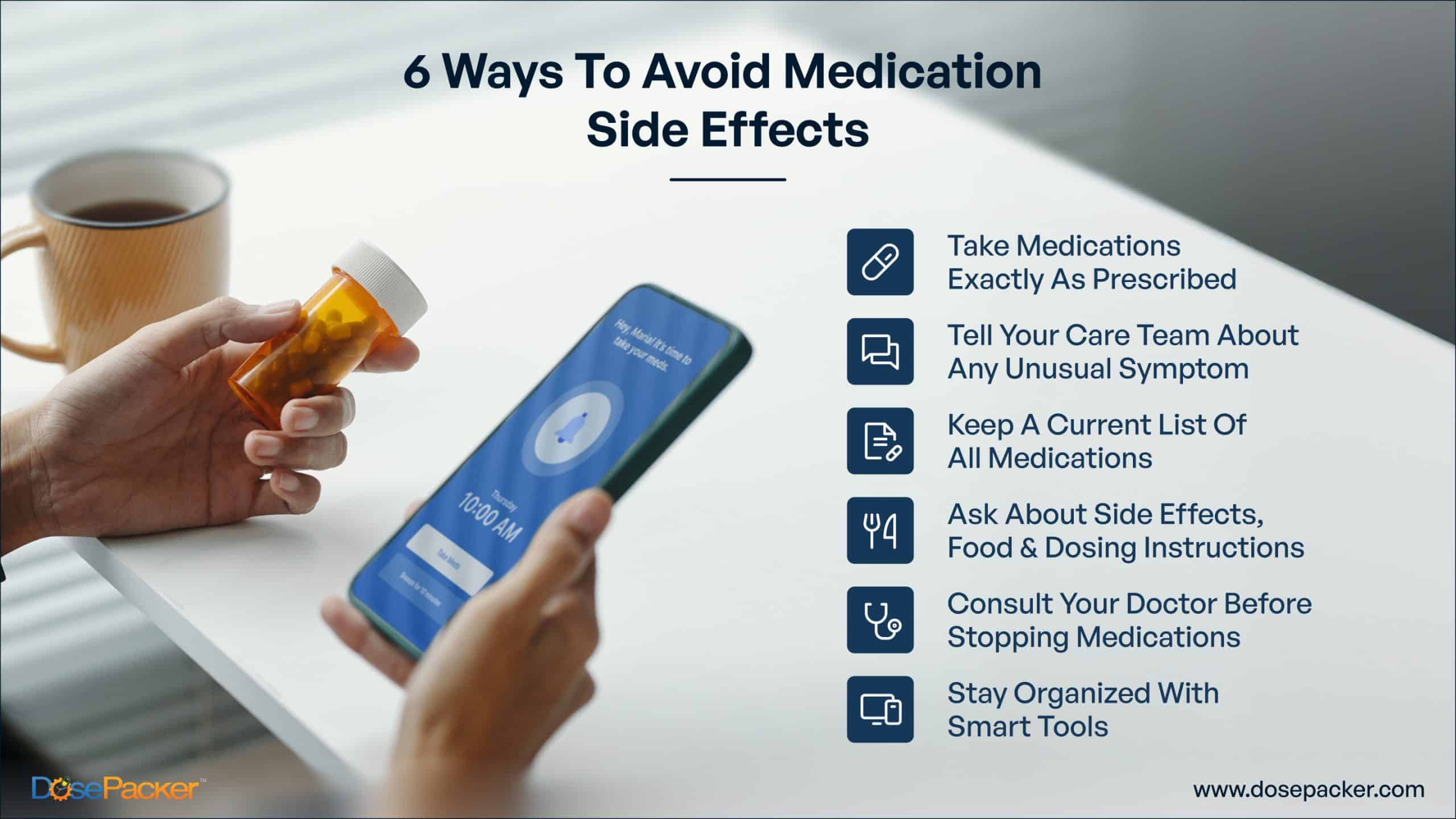
When to Seek Help
Most medication side effects are mild, such as headaches, drowsiness, or stomach upset, and often subside as your body adjusts. But some reactions can be serious and should never be ignored.
Watch out for urgent symptoms such as:
- Difficulty breathing or shortness of breath
- Swelling of the face, lips, or throat
- Chest pain or irregular heartbeat
- Severe dizziness or confusion
- Unusual bleeding or bruising
If a side effect feels unusual, gets worse, or doesn’t go away, contact your doctor or pharmacist right away. It’s always safer to ask than to wait.
How DosePacker Can Help
Managing medications doesn’t have to feel complicated. With the right tools, you can reduce the risk of errors, stay on schedule, and feel confident that you’re taking the right dose at the right time. That’s exactly what DosePacker provides: simple, smart solutions designed to make medication management and administration safer and easier.
Here’s how our solutions support you every step of the way:
DoseKart
More than just a cart, DoseKart is a secure and efficient medication station. With its ergonomic design and safe storage, this device helps caregivers administer medications with confidence and reduce errors.
DosePack: Compliance Packaging
Our technology-enabled compliance packs feature unit and multi-dose slots that are easy to tear away. Each pack includes high-resolution medication images and patient information, so you always know exactly what you’re taking and when.
MyDoses App
Staying consistent is simple with our MyDoses mobile app. It connects directly to your medication packaging, sends real-time reminders, and even keeps your healthcare provider in the loop with updates and support.
DoseMinder
This smart medication storage device works hand in hand with the MyDoses app. It tracks your medication intake, sends auto-reminders, and even offers video confirmation for added accountability, providing you or your caregiver with absolute peace of mind.
With these tools, you’re not just managing medications, you’re creating a safer, stress-free routine. For patients, families, and caregivers, the products and solutions offered by DosePacker bring more confidence, fewer worries, and better health outcomes.
Make Every Dose the Right Dose
Your Partner in Safer Medication Care

Even when side effects feel overwhelming, that doesn’t mean you have to stop your treatment. With the right guidance and a willingness to discuss your concerns openly with your doctor or pharmacist, most medication side effects can be managed or even prevented. Staying informed and proactive is the best way to ensure your medications work for you, not against you.
At DosePacker, we’re here to make medication care safer, simpler, and more reliable. From smart packaging to helpful reminders, our tools give you the confidence that every dose is the right one.
